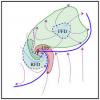-
Posts
1,504 -
Joined
-
Last visited
-
Exactly. The corrections applied to nClimDiv (USHCN) still aren't fully offsetting the biases and errors.
-
Several years ago Shewchuck told me that he has testified in court as meteorological expert using only raw data because his worldview is that you should never apply corrections to fix biases, errors, and/or mistakes. When I asked if he discloses to the court that the data may contain biases, errors, and/or mistakes the conversation ended immediately and he ghosted me. I think at some level contrarians have to know that what they are arguing for is at best unethical and potentially fraudulent with criminal consequences at worst. It makes it even that more baffling that they continue down this line of argument while simultaneously gaslighting the rest of us as if we're in the wrong.
-
Over their mutual overlap period from 2005/01 to 2025/05... +0.65 F.decade-1 is the warming trend using nClimDiv (formerly USHCN). +0.77 F-decade-1 is the warming trend using USCRN. Considering that nClimDiv should have a more significant UHI component than that of USCRN it would not be unreasonable to hypothesize that it is underestimating the warming in the United States more than the trivial difference would already imply. I'll also remind readers here of the net effect of all adjustments at the global level. [Hausfather 2017]
-
It hit 121 F in Lytton, British Columbia on June 29th, 2021. Prior to the 2021 heat wave the previous high temperature in Canada was 112 F. It is interesting to note that the extreme heat and drought that day caused Lytton to burn to the ground...literally. A wildfire developed and consumed the entire town including the weather station before it could record the daily high on the following day.
-
[Mauritsen et al. 2025] - Earth's Energy Imbalance More Than Doubled in Recent Decades "Worryingly, the observed energy imbalance is rising much faster than expected, reaching 1.8 Wm−2 in 2023—or twice that predicted by climate models—after having more than doubled within just two decades."
-

Chester County PA - Analytical Battle of Actual vs. Altered Climate Data
bdgwx replied to ChescoWx's topic in Climate Change
And at the global level the net effect of all adjustments actually reduces the overall warming trend. [Haufather 2017] -
It turns out Lindzen's Iris Theory is yet another failed contrarian theory. The Earth does not have some magical iris that prevents warming by reducing absorbed solar radiation. In fact, the consilience of evidence points to a positive shortwave feedback which was hypothesized as early as the 1960s.
-
That is a really good and interesting question. This touches on the topic of ENSO as well. As we've discussed before the ENSO region hasn't warmed in the last few decades despite the global average warming. As a result the general circulation patterns that had once typified the ENSO cycle are no longer playing out; at least not in the same way as they once did. This is because El Nino's appear attenuated and La Nina's amplified against the global backdrop. This is the primary motivation of new indices like the RONI.
-
Here is the academic publication related to Google's new cyclone model. [Alet et al. 2025]
-

Chester County PA - Analytical Battle of Actual vs. Altered Climate Data
bdgwx replied to ChescoWx's topic in Climate Change
Discussing the justification for corrections is irrelevant if your position is still that corrections should never be applied to fix biases, errors, and/or mistakes. I'm asking if you still maintain this position because it sounds like you are having second thoughts about it...which is good. But I'm not going to waste my time explaining how we can know what the biases and errors are if you don't think correcting them is ever justified. -

Chester County PA - Analytical Battle of Actual vs. Altered Climate Data
bdgwx replied to ChescoWx's topic in Climate Change
Stop deflecting and diverting. Is it okay to study data for the existence of biases, errors, or mistakes and make the appropriate corrections or not? -

Chester County PA - Analytical Battle of Actual vs. Altered Climate Data
bdgwx replied to ChescoWx's topic in Climate Change
You've been telling me the problem is the act of making corrections or even just determining if there are biases, errors, or mistakes is fraudulent and should never be done under any circumstance. -
Speaking solar cycles...The study of solar output is a great example of another discipline of science that performs corrections/adjustments for biases and errors in the instrumentation to create a more accurate picture of what is actually happening. Dr. Kopp's webpage is a good starting point for the science of solar output in general, but more pertinent to the discussion at hand you can see how the bias corrections/adjustments work to homogenize the observations of the different solar observatories and that without these corrections/adjustments scientists would grossly misinterpret how the Sun behaves.
-
Nobody is challenging Milankovitch or solar behavior that causes cyclic oscillations in Earth's climate. In fact, it is scientists who have assessed and corrected biases, errors, or mistakes in the pioneering works of early scientists that we figured out that Earth's orbit and solar output wasn't actually static.
-
And here's the thing. If you know the raw data is wrong because you analyzed the situation and determined that a sighting change caused the 2 F bias then just subtract out the 2 F bias like what everyone else in all other disciplines of science does. It almost defies credulity that we are even having a debate about that. Correcting biases, errors, and/or mistakes is the ethical thing to do. Doing anything else is unethical at best and fraudulent at worst. And in some professions if you knowingly ignore a bias, error, and/or mistake or omit data because of such you can cause serious harm up to and including death and/or be prosecuted for a crime as you should be. This is why I want to know the root of this worldview in which biases, errors, and mistakes should be ignored contrary to any rational interpretation of "right" vs "wrong". How did contrarian thinking get so warped that they completely reversed the interpretations of "right" vs "wrong"?









